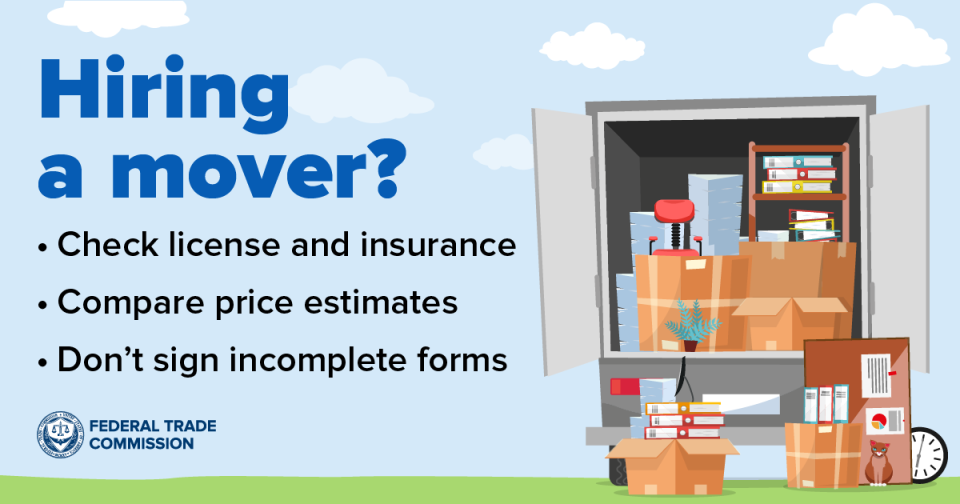Congratulations! You found a new place to live. Now you have to coordinate a move. Whether you’re moving across town or cross-country, you might need more than friends to haul your belongings. Here are some ways to avoid scams when you look for a moving company.
Check the company’s registration and reputation.
- A company that moves you across state lines or outside the U.S must be registered with the U.S. Department of Transportation (DOT). Search the DOT website to check registrations and get details about the company.
- If you’re moving within your state, ask state consumer protection offices if they have rules or information about moving companies. When you’re on a mover’s website, look for information the state requires, and a local address and the movers’ contact information, registration, licenses, and insurance.
- To see what other people say about the company, read reviews, and search the company name online plus the words “complaint,” or “scam.”
Get information in writing.
- Get written price estimates from several movers. A company should look at your property in person or ask you to fully describe it before it sends the estimate. Review the estimates, make sure they list all your property, and then compare them.
- Ask each mover what they charge to insure your goods and what they pay if things are damaged.
Say no if you see these signs of a scam.
- Don’t hire anyone who asks you to sign paperwork that has blank spaces where prices, dates, signatures, or other important information should be.
- Don’t hire anyone who demands cash or a big deposit before the move.
- Don’t hire an interstate mover that isn’t registered with DOT.
Report problems.
If you have a problem with a company moving you in-state, contact your state enforcement agency. If the company moves you across state lines or outside the U.S., report to DOT. Learn what to do if you paid someone you think is a scammer. If you see a scam, tell the FTC at ReportFraud.ftc.gov.

